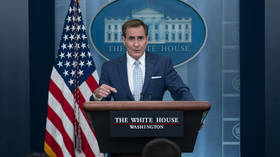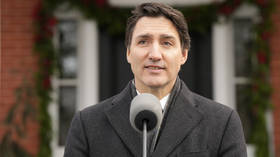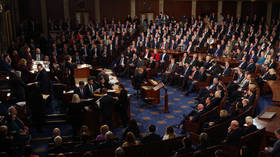US officials admit anti-Russia sanctions aren't working – CNN

American officials admitted to CNN on Friday that US-led sanctions haven’t crashed Russia’s economy. Despite Moscow's record energy revenue and the strength of its currency, the officials insist that the effects of the sanctions are yet to be felt.
The US and its NATO and EU allies responded to Russia’s military operation in Ukraine by applying unprecedented economic sanctions to its economy. Russia became the world’s most sanctioned country within two weeks of the offensive, yet after successive rounds of penalties, energy embargos and excommunication from the SWIFT banking system, Moscow is reaping record profits from its fossil fuel exports, the ruble is as strong against the dollar as it was in 2019, and Russia’s inflation rate has fallen.
"We were expecting that things like SWIFT and all the blocking sanctions on Russia's banks would totally crater the Russian economy,” one unnamed US official told CNN. Another said that Washington “hoped to see the Russian economy suffering more by now, given the unprecedented severity” of the sanctions, CNN paraphrased.
Russian President Vladimir Putin expressed the same sentiment during an economic meeting earlier this week, declaring that the West’s “economic blitzkrieg” had failed.
Despite the apparent failure, the US officials told CNN that they expect to see Russia’s economy faltering by mid-2023. Shortages of foreign raw materials and components will be apparent by then, the officials said, with one saying that the US “has always seen this as a long term game.”
As far back as March, however, US President Joe Biden was claiming that sanctions had already “caused the Russian economy to crater,” citing a dip in the value of the ruble that proved to be short-lived.
Europe, however, has suffered immense economic damage as a result of its own sanctions on Russia. Fuel prices have skyrocketed across the continent, inflation in the EU is at its highest level in history, and even Germany, the bloc’s foremost industrial power, risks “deindustrialization” as a result of the energy crisis.
Like their American counterparts, European officials have insisted that on a long enough timeline, their sanctions will affect Russia. Addressing the European Parliament earlier this week, EU High Representative for Foreign Affairs Josep Borrell said that sanctions “may not have an immediate impact,” adding: “It’s like going on a diet to lose weight and being upset that you haven’t lost kilos and kilos after just a couple of weeks.”













